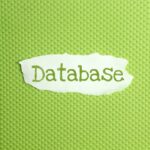
In the era of digital marketing, data is the heart of any successful strategy. However, having accurate and up-to-date data in your CRM (Customer Relationship Management) is crucial to ensure that your marketing campaigns are effective and your sales efforts are not in vain. In this article, we will explore the importance of validating information in your CRM, how to do it effectively, and the benefits it can bring to your company.
Why is it Important to Validate Information in Your CRM?
Improves Data Accuracy
The accuracy of data in your CRM is fundamental to ensuring that communications with your customers and prospects are relevant and timely. Incorrect or outdated data can lead to misunderstandings, missed sales opportunities, and decreased customer satisfaction. By validating your data, you ensure that the information in your CRM is accurate, which improves the effectiveness of your marketing campaigns and the efficiency of your sales team.
Increases Operational Efficiency
Data validation helps eliminate redundancy and errors, which in turn increases operational efficiency. When your team does not have to deal with duplicate or incorrect data, they can focus on more strategic and productive activities, such as personalizing campaigns and effectively following up with leads.
Improves Decision-Making
Having accurate and up-to-date data in your CRM allows business leaders to make more informed and strategic decisions. With a clear and precise view of your customers and prospects, you can identify trends, predict future behaviors, and adjust your marketing and sales strategies accordingly.
How to Validate Information in Your CRM
Step 1: Assess Data Quality
The first step in the data validation process is to assess the quality of the information existing in your CRM. This includes:
- Completeness: Is key information missing from your customer records?
- Accuracy: Are the data correct and up to date?
- Consistency: Are there inconsistencies in the information between different records?
- Relevance: Are the data relevant to your marketing and sales objectives?
Step 2: Use Data Validation Tools
There are various tools and software specifically designed for data validation in CRM. These tools can help you:
- Detect and eliminate duplicates: Identify duplicate records and merge them to maintain data integrity.
- Correct errors: Fix misspelled email addresses, incorrect phone numbers, and other common errors.
- Update information: Use external sources to verify and update contact information for your customers and prospects.
Recommended Tools:
- Informatica Data Quality: This tool allows you to validate and improve the quality of the data in your CRM, ensuring they are accurate and useful.
- ZoomInfo: Offers solutions for automatic contact data updating and duplicate elimination.
- RingLead: Helps prevent duplicate data entry and clean the existing database.
Step 3: Implement Continuous Validation Processes
Data validation is not a one-time process; it requires continuous maintenance to ensure data remains accurate and up to date. This includes:
- Regular audits: Review and update data periodically.
- Automation: Use automation to update data in real time.
- Team feedback: Collect feedback from your team to identify and correct data issues.
Step 4: Train Your Team
It is essential that your entire team understands the importance of data quality and how to maintain it. Train your employees on best practices for data entry and maintenance, and ensure that everyone is aligned with the company’s data quality goals.
Benefits of Validating Information in Your CRM
Personalization of Marketing Campaigns
With accurate and up-to-date data, you can personalize your marketing campaigns to target the right segments of your audience. Personalization increases the relevance of your messages, resulting in higher conversion rates and better relationships with your customers.
Better Customer Experience
Having accurate information allows you to offer a more consistent and satisfying customer experience. This includes personalizing communications, effectively tracking interactions, and quickly resolving issues, which improves customer satisfaction and loyalty.
Increased Sales Team Efficiency
With validated data, your sales team can work more efficiently, focusing on high-quality leads and avoiding wasting time on incorrect or outdated information. This translates into higher productivity and better sales results.
Cost Reduction
By eliminating duplicate and incorrect data, you can reduce costs associated with ineffective marketing campaigns and duplicate efforts. Additionally, by improving operational efficiency, you can optimize resource use and increase return on investment.
Use Cases: Impact of Data Validation in CRM
Case 1: E-commerce Company
An e-commerce company faced issues with their customer database, which was full of duplicate and outdated records. By implementing a data validation solution, they achieved:
- Elimination of 20% duplicate records.
- Update of contact information for 30% of their customers.
- 15% increase in conversion rate due to more precise marketing campaigns.
Case 2: Financial Services Provider
A financial services provider used data validation tools to improve the accuracy of their CRM. This allowed them to:
- Reduce lead follow-up time by 25%.
- Increase customer satisfaction by 10% through personalized communications.
- Improve sales team efficiency, resulting in an 18% increase in annual sales.
Case 3: B2B Software Company
A B2B software company implemented continuous data validation processes to keep their CRM up to date. The results were:
- 22% increase in contact data accuracy.
- 12% reduction in operational costs by eliminating duplicate efforts.
- Improved strategic decision-making due to more reliable data.
Advanced Strategies for Data Validation
Implementing Effective Data Governance
Data governance refers to the policies and procedures that ensure the quality, consistency, and security of data within an organization. Effective data governance is essential to maintaining the integrity of a unified database. Key practices include:
- Defining roles and responsibilities: Ensuring that each team member knows their role in data management.
- Establishing clear policies: Creating and enforcing policies for data entry, updating, and deletion.
- Continuous monitoring and auditing: Regularly reviewing data to identify and correct quality issues.
- Using dashboards and reports: Implementing data visualization tools that allow real-time monitoring of data quality and consistency.
Using Artificial Intelligence for Data Validation
Artificial intelligence (AI) can play a crucial role in data validation. AI technologies can quickly analyze large volumes of data, identify patterns and correlations, and help clean and normalize data. Some AI applications in data validation include:
- Pattern recognition: Automatically identifying and merging duplicate records.
- Error correction: Detecting and correcting errors in data faster than manual methods.
- Predictive analysis: Using validated data to predict customer behaviors and trends, improving decision-making.
Implementing Continuous Validation Strategies
Automating Data Validation
Automation plays a crucial role in continuous data validation. By automating processes, you can ensure that data is updated and validated in real time, reducing manual workload and minimizing errors.
Tools for Automation:
- Zapier: This tool connects multiple applications and services, automating workflows and ensuring data synchronization across all your platforms.
- Segment: Acts as a central hub for all your data, allowing you to collect, unify, and send data to different tools and applications.
- HubSpot: Offers a comprehensive CRM and marketing platform with advanced data management and integration functionalities.
Monitoring and Regular Audits
To maintain data integrity over time, it is essential to implement a system of monitoring and regular audits. This includes:
- Dashboards and reports: Use data visualization tools to monitor real-time data quality and consistency.
- Periodic audits: Schedule regular audits to review and update data, ensuring they remain accurate and relevant.
- Team feedback: Collect feedback from your sales and marketing team to identify and correct data issues.
Training and Data Culture
Creating a data culture in your organization is vital to ensuring that everyone understands the importance of maintaining data quality. This involves:
- Continuous training: Provide regular training to your team on best practices for data entry and maintenance.
- Clear policies: Establish clear policies for data entry, updating, and deletion, and ensure everyone follows them.
- Roles and Responsibilities: Define clear roles and responsibilities for data management within your team.
Cloud Data Integration
Cloud data integration offers flexibility and scalability, allowing you to manage large volumes of data more efficiently. Some popular solutions include:
- Talend: A data integration tool that connects, cleans, and transforms data from multiple sources.
- Informatica: Cloud data integration platform that facilitates data consolidation and cleaning.
Impact of AI on Data Validation
Artificial intelligence (AI) is revolutionizing how information is validated and managed in CRMs. AI technologies can quickly analyze large volumes of data, identify patterns and correlations, and help clean and normalize data.
AI Applications in Data Validation
- Pattern recognition: AI can automatically identify and merge duplicate records.
- Error correction: AI technologies can detect and correct errors in data faster than manual methods.
- Predictive analysis: Use validated data to predict customer behaviors and trends, improving strategic decision-making.
Future of Data Validation in CRM
Emerging Trends
Data validation is constantly evolving with new technologies and approaches. Some emerging trends include:
- Cloud data integration: Migration to the cloud allows greater flexibility and scalability in data management.
- System interoperability: The development of open standards facilitates the integration of different systems and platforms.
- Real-time analysis: The ability to analyze data in real time enables faster response to customer trends and behaviors.
- Privacy and compliance: With increasing data privacy regulations, companies are adopting technologies and practices that ensure compliance and data protection.
Impact on Decision-Making
As companies continue to validate and improve their data, data-driven decision-making becomes more accurate and effective. With a solid and unified database, companies can:
- Identify market opportunities: Detect new trends and growth areas.
- Optimize resources: Allocate resources more effectively based on accurate data
- Improve customer experience: Offer more personalized and satisfying experiences to customers.
- Increase business agility: Quickly respond to market changes and customer needs.
Conclusion
Validating information in your CRM is an essential component of any effective marketing and sales strategy. By maintaining accurate and up-to-date data, you can personalize your campaigns, improve operational efficiency, and make more informed strategic decisions. While data validation can present challenges, the right tools and strategies can help you overcome them and fully leverage the potential of your data.
Implement a data validation system in your company today and start seeing the benefits of an accurate and up-to-date database. Investing in data quality is an investment in the success of your business. With a solid and well-managed database, you will be better prepared to face market challenges and seize new growth opportunities.






No comment yet, add your voice below!